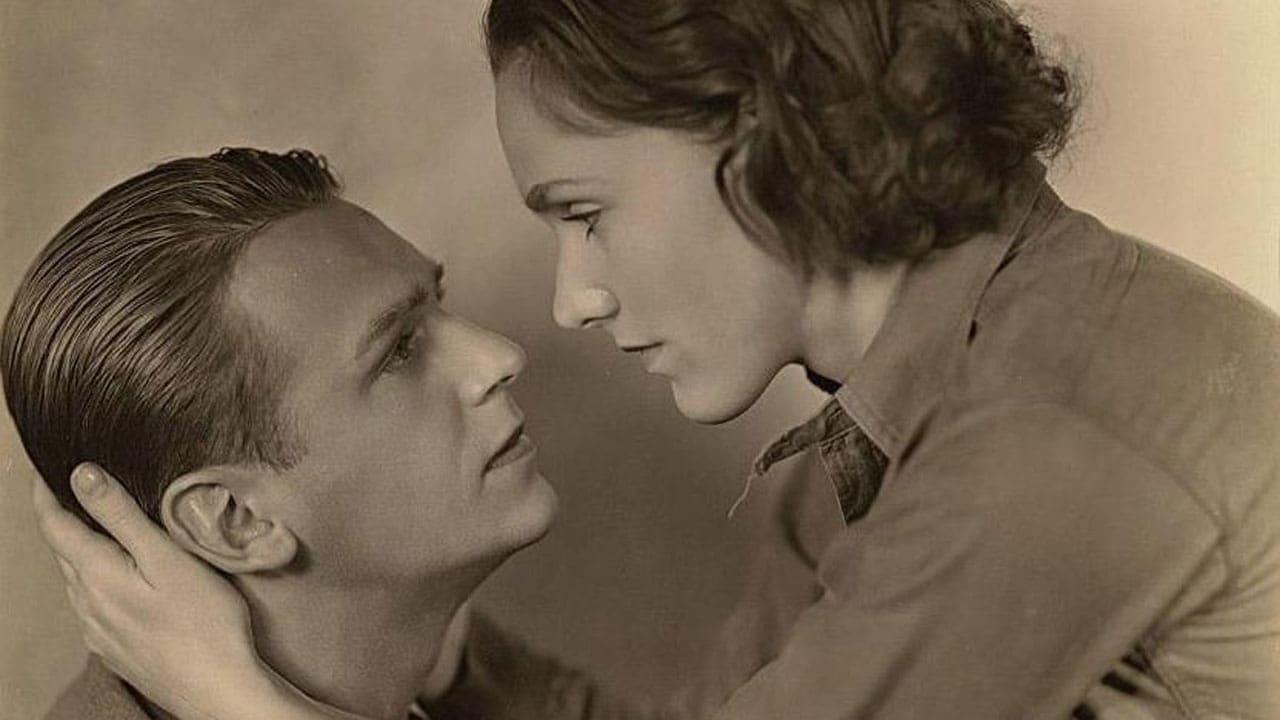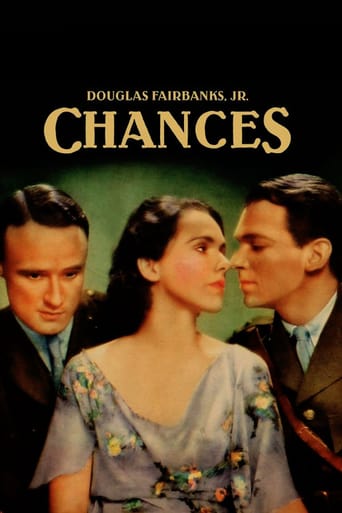



ridiculous rating
Overrated and overhyped
Easily the biggest piece of Right wing non sense propaganda I ever saw.
View MoreThis is a dark and sometimes deeply uncomfortable drama
View MoreDirected by Alan Dwan, with an adaptation by Waldemar Young, this slightly above average World War I drama borrows a romantic storyline from Hell's Angels (1930), that of two brothers, one carefree and one serious, who go off to fight in the same unit, while leaving behind a woman they both love. Douglas Fairbanks Jr. and Anthony Bushnell play the brothers, respectively, and Rose Hobart plays the woman who (like Jean Harlow) is initially the love interest of the serious brother, before she falls hard for the carefree one. Even the same brother dies in the end, though not by heroism and far less dramatically. The only real difference is that all three were childhood friends in this one; Bushnell and Hobart were close whereas Fairbanks Jr. was annoyed by her.In 1914 London, where the inseparable brothers are going through training together, Fairbanks Jr. is captivated by a beautiful woman he meets in the fog, not realizing it's someone from his past until he and Bushnell return to their mother's (Mary Forbes) where Hobart is a guest. In a party sequence, (not entirely unlike the other film), Fairbanks Jr. wins over Hobart's until he learns of his brother's plan to marry her. He then uses another woman (Florence Britton, uncredited) to reestablish his playboy persona in front of Hobart, hoping she'll be satisfied with Bushnell.Once the brothers are shipped off to war, Fairbanks Jr.'s character gets to perform admirably in battle, earning him a seven day leave. His brother asks him to find out why his would-be fiancée has stopped writing him. On his way through Calais, he runs into her, she's a driver now, and they declare their love for each other once again. Fairbanks Jr. urges her to write Bushnell of their love, then spends all but the last day of his leave with his mother. His last day is spend romantically with Hobart's character, who gives him a picture of herself with a loving inscription to "keep her close, so she can protect him".Sometime after he returns, his brother learns the truth about who loves whom, through a misunderstanding with the aforementioned picture. Other than that, there's not much left besides some unspectacularly staged (when compared to The Big Parade (1925) or All Quite on the Western Front (1930)) ground battle sequences; of course it would be nearly impossible to top Hell's Angels (1930) aerial sequences. Holmes Herbert plays the brothers' commander; Edmond Breon a General, Harry Allen a Private.
View MoreDouglas Fairbanks Jr. and Anthony Bushell are the Prescott brothers in 1931's "Chances," and both are in love with the same woman, Molly (Rose Hobart). The two brothers go off to war while Molly does her part in the effort, Tom (Bushell) believing that Rose is waiting for him, while in fact, she loves Jack (Fairbanks Jr.) and only turned to Tom on the rebound. Jack and Molly meet while he is on leave, and when he returns to battle, he doesn't know how to handle the situation with his brother.This is a very dated film done in that weird time that was the transition between silent and sound. This makes the dialogue pacing off and the film seem mannered and stagy. It's by no means a heavy look at war as some of the films made around the same time were, but rather focuses on the brothers' relationship and their mutual love for one woman. Fairbanks Jr. emerges as the best actor, giving a solid performance. Hobart is very serious and kind of boring, and Bushell is good-looking but callow. It's all very stiff upper lip and pip-pip."Chances" is a dark-looking film with some well-done battle scenes. One interesting bit of trivia about the cast is that all three leads lived to be 90 and above. One wonders if in later years, they even remembered this early effort.
View MoreThis film is a weird hybrid of silent film and stage play, but it never quite manages to be a movie.The battle scenes are impressively cinematic, well-staged and photographed in the D.W. Griffith mold, but what comes between them is very uneven.The British accents come and go and the acting is stagy. Douglas Fairbanks Jr. is engaging as a rake at the beginning but can't encompass the deeper emotions towards the end. Rose Hobart is much better at playing resentment and bitterness than romance, which is my guess why she slid from lead to character woman so quickly. Anthony Bushell is a wet noodle as the stolid brother, which is probably right, but no fun to watch.And what was this project doing at First National (Warners) anyway? Paramount or MGM could function well with a bunch of rowdy English aristocrats at play, but they might as well be moon-men to the studio home of Jimmy Cagney and Edward G. A tommy-gun or malicious half-grapefruit would have helped this film immensely.So, interesting as an awkward curio, but constipated compared to the great silent WWI films like The Big Parade or What Price Glory? and clumsy compared to the great talkies that would accompany WWII.
View MoreDouglas Fairbanks, Jr. is very good in this romance/war film, playing a man who loves his brother's fiancee. Good cinematography helps put a gossamer glow on this early talkie that also boasts good work by Rose Hobart and Anthony Bushell. It never gets sticky but still manages to show moving relationships between brothers and between Fairbanks (always underrated) and Hobart, who unaccountably sank quickly to second leads. The story may seem a tad dated now, but this old film is definitely worth a look. Mary Forbes is the mother, and I think Ethel Griffies plays the drunken flower seller.
View More